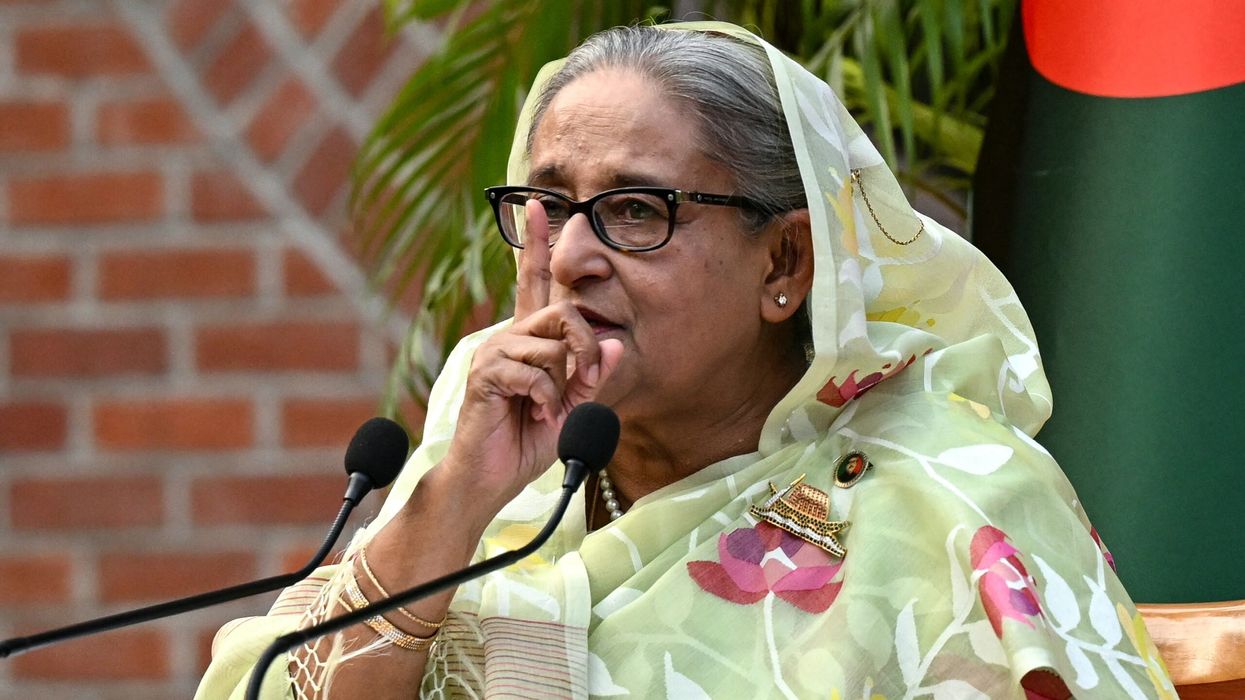A British Indian mother-of-two had died last month after waiting 'almost an hour' for an ambulance to arrive, reported The Daily Mail.
Bina Patel, 56, from Ashton-under-Lyne, in Tameside, Greater Manchester already had 'no pulse' by the time paramedics got to her home, said her son Ashkay.
According to the report, she has been 'struggling to breathe' and was heard screaming 'help me, I'm dying, I can't breathe' in 999 call recordings.
She died from a 'suspected cardiac arrest', according to a patient report completed by North West Ambulance Service (NWAS).
Ashkay, 27, had called for an ambulance 'seven times' as her condition deteriorated, in the early hours of October 11, and sat with her as she took her final breaths, The Mail report said. Now, he blames NWAS for her death.
In the weeks following the tragedy, Ashkay has demanded answers, saying 'my mum suffocated for almost an hour' and that her life 'could have been saved'.
Recent figures revealed that patients suffering heart attacks and strokes are waiting for more than an hour for an ambulance amid crippling NHS pressure.
Patel, who worked in the town's Asda as a cashier for 15 years, had been out to meet friends in Leicester on October 10 before returning home and heading to bed. All seemed well and she was happy, said her son.
But in the early hours of the next morning, Ashkay woke to the sounds of her shouting for his help, frightened that she was struggling to breathe.
Patel had long-term diabetes but no unexpected, underlying conditions that would leave her short of breath. When her condition deteriorated, he made his first of seven calls to 999, asking for an ambulance just after 2.30am.
The call handler told him an ambulance would be on its way and that he should attempt to keep the patient calm, Ashkay told The Mail.
According to the report, the times of the calls, following the initial report at 2.30am, were 2.52am, 3.03am, 3.10am, 3.17am, 3.23am and another a few seconds later.
During the call at 2.52, the call handler can be heard saying that the wait for an ambulance is an 'hour and a half' as 'we're very busy'.
In the second recording, from the call at 3.17am, Ashkay tells the emergency service that his mother has now stopped breathing entirely.
A call handler can be heard saying that there is 'nothing' Ashkay can do to help, and that he should wait for paramedics to arrive. The call handler then said they have 'another call coming in and (they) have to hang up'.
According to Ashkay, an ambulance and paramedic car arrived at 3.27am, nearly an hour after his initial 999 call. Patel has pronounced dead shortly after.
By this point, he had been doing CPR as directed by the call handler to no effect and his mother was already dead, he claimed.
"The level of care received on that evening was just atrocious," Ashkay was quoted as saying.
"Tameside Hospital is two minutes up the road from where we live. If I could have got her in the car and driven her up there myself, I would have. But she just couldn't. A life potentially could have been saved that night because she was struggling for breath for a full hour while waiting for the ambulance service."
NWAS is now making internal enquiries into the incident, said Ashkay, and has promised him a response within 60 days.
A NWAS spokesperson said: "We wish to pass on our deepest sympathies to Patel and his family for the loss of his mother. We can confirm we have received an official complaint, and the investigation is ongoing. We are in contact with the family and will update them with our findings."
Ashkay and his brother hope to raise money in her memory for their local temple and the British Heart Foundation.







 John Dramani Mahama welcomes Modi on his arrival in Accra last Wednesday (2)
John Dramani Mahama welcomes Modi on his arrival in Accra last Wednesday (2) South Africa’s president Cyril Ramaphosa, Brazil’s president Luiz Inacio Lula da Silva, Modi and China’s premier Li Qiang at the Brics summit last Sunday (6)
South Africa’s president Cyril Ramaphosa, Brazil’s president Luiz Inacio Lula da Silva, Modi and China’s premier Li Qiang at the Brics summit last Sunday (6)












